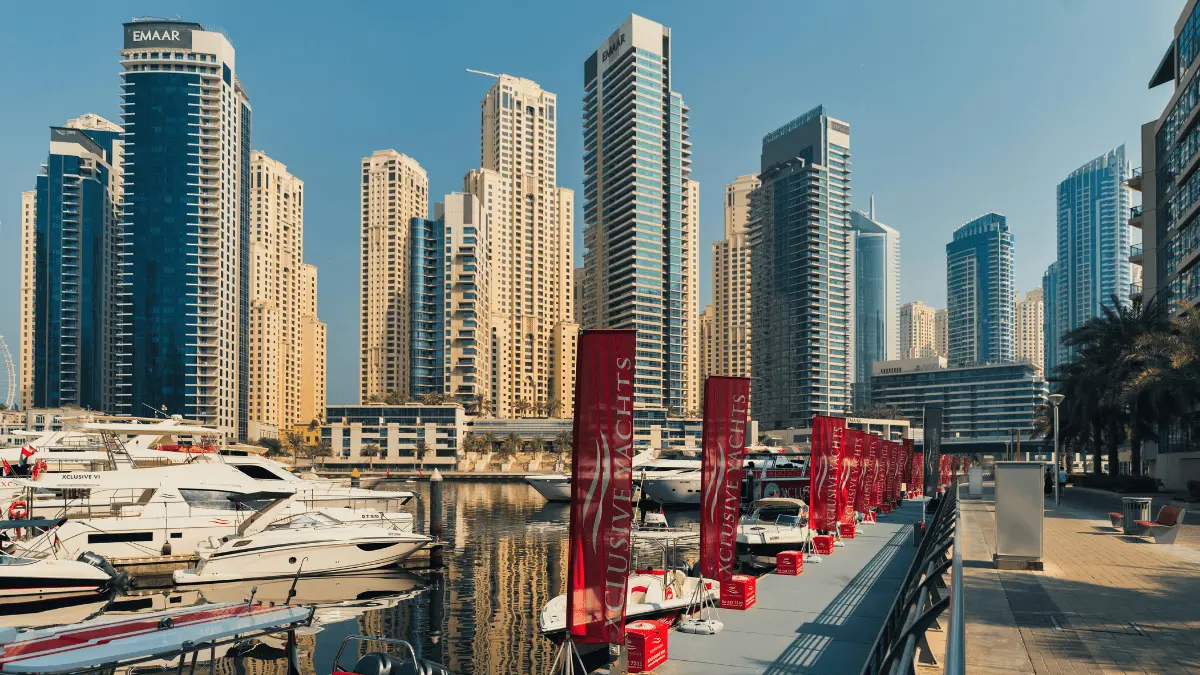Moving to Dubai means a lot of change. There are plenty of homes to choose from, but the paperwork and rules can be confusing if you are new here.
Here are the main rules when renting property in Dubai, and what actually happens in practice, so you can handle the process with less stress.
Quick note: Dubai’s rules can change quickly. Always check the latest information with the Dubai Land Department before you sign anything.
Set a “Real World” Budget
Before you start looking at properties, check your budget. Rent is only part of the cost. Make sure you include these up-front expenses:
- Security deposit: Usually 5% of the annual rent for unfurnished places, 10% for furnished. You get it back when you move out, as long as the place is in good shape. Normal wear and tear is fine.
- Agency fee: This is the broker’s commission. Usually 2–5% of the annual rent, plus VAT. Some agencies charge more. A good agent can save you time and trouble.
- Ejari Registration: This is mandatory (more on this later)—budget between AED 195 and AED 220 to register your contract legally.
- DEWA: (utilities) and moving: DEWA charges a non-refundable connection fee (about AED 110–130) and a refundable deposit (AED 2,000 for apartments, AED 4,000 for villas). You will also need to budget for movers and any minor repairs.
Choose an Agent Who Actually Knows Their Stuff
There are many agents in Dubai, but not all are reliable. Only work with agents who have RERA licenses.
Why you need a RERA-registered agent:
- They know the law: They ensure your contract isn’t just a piece of paper, but a legally binding document.
- They are your shield: They vet landlords and properties, so you don’t get scammed.
- The “Broker Card”: Always ask to see their RERA card (or look them up on the Dubai REST app). If they don’t have one, walk away.
Viewing and Selecting Your New Home
This is the fun part, but keep your logical hat on. When viewing properties, think about your daily life. Is the traffic on Hessa Street going to drive you crazy? Is there a Spinneys nearby?
The Inspection Checklist:
- The “Bones” of the house: Check the walls for cracks or fresh paint (which can hide mold). Test the water pressure.
- The AC: This is non-negotiable in Dubai. Please turn it on immediately upon entering. If it rattles or doesn’t cool down the room in 5 minutes, it’s a problem.
- Ask who is responsible for repairs. Usually, the landlord covers major repairs over AED 500. You handle smaller issues.
- Ask if you need a move-in permit. Most places require it, and you will need your Ejari to get one.
Decoding the Tenancy Contract
Dubai tenancy law (Law 26 of 2007) is actually quite protective of tenants, but only if you have a written, registered contract.
Rent is usually paid with post-dated cheques given at signing.
- 1 Cheque: You pay the whole year upfront. This usually gives you the most bargaining power for a lower price.
- 4 Cheques: The most common standard (quarterly payments).
- 12 Cheques: Becoming more common, but landlords might ask for a slightly higher rent for the convenience.
Ejari is the official registration of your lease. You need it to get utilities, internet, and to renew your visa.
- To register, bring your contract, DEWA receipt, Title Deed, and copies of your passport or ID to a typing center, or use the Dubai REST app. It costs about AED 220. Register as soon as you sign.
Quick note: if you want to know more about the best banks to open an account in Dubai, you can read our article on Best Bank Accounts for Expats in Dubai
Know Your Rights (and What You Must Do)
Most people have no issues, but sometimes disputes come up. Here is what you need to know:
Your Rights:
- Quiet Enjoyment: Once you have the keys, the landlord can’t just barge in. They need to give you notice to visit.
- No Random Evictions: A landlord can only evict you for specific reasons (like selling the place or moving in themselves). Even then, they must send a 12-month eviction notice via Notary Public. A text message does not count.
- The RERA Rental Index limits rent increases: If the calculator says no increase, the landlord cannot raise the rent. They must give you 90 days’ notice before renewal if they want to change the price.
Your Obligations:
- Pay on Time: Bouncing a cheque is a serious offense in the UAE. Ensure the funds are in your account on the due date.
- Be a Good Neighbor: Follow community rules (especially regarding pets and noise).
- Return the property in good condition: If you changed anything, like painting a wall, put it back to the original state before you leave.
Insider Tips for a Smooth Move
- Negotiate the Cheques: If you love a place but the rent is slightly high, offer to pay in 1 or 2 cheques. Landlords love cash flow and might drop the price.
- Ask if the building is chiller-free. If not, you will pay an extra charge for air conditioning on your DEWA bill.
- Photo Evidence: Before you move a single box in, take photos of everything. Scratched floor? Photograph it. Stained carpet? Photograph it. Email these to the agent immediately. This is your insurance policy against losing your deposit later.
- The Timing Game: If your lease is ending, check the RERA Calculator 3 months in advance. If the market has gone up, expect a negotiation. If it’s gone down, use that data to request a rent reduction.
FAQs About Renting Property in Dubai
How many rental cheques should I write?
The market standard is usually 1 to 4 cheques. If you can pay in 1 cheque, you often get a better deal. If you need to manage cash flow, ask for four or even 12, but expect the landlord to be firmer on the price.
What is Ejari, really?
Think of it as validating your contract. Without Ejari, your contract is just a piece of paper between two people. With Ejari, it’s a government-recognized record that protects you in court.
What do I need to register everything?
Have a folder ready with: your passport, the Visa page, your Emirates ID (front and back), the signed Tenancy Contract, and the Title Deed (from the landlord). You’ll need these for everything.
How much is the rent deposit in Dubai?
5% for unfurnished, 10% for furnished. Don’t let anyone tell you otherwise unless it’s a short-term holiday rental.
Can the landlord in Dubai raise my rent?
Not just because they feel like it. They must give you 90 days’ written notice, and the RERA Rental Index must justify the increase.
Can they kick me out so they can sell the place?
Yes, but they have to play by the rules. They must send you a formal eviction notice through the Notary Public, giving you 12 months to move out.
What if they cut off my electricity?
This is illegal. Even if you are fighting over rent, a landlord cannot cut your utilities. If they do, go to the police and the Rental Disputes Settlement Centre (RDSC).
Renting in Dubai is straightforward if you follow the rules. Use a good agent, register your Ejari, and keep records. This will make your move much easier.












